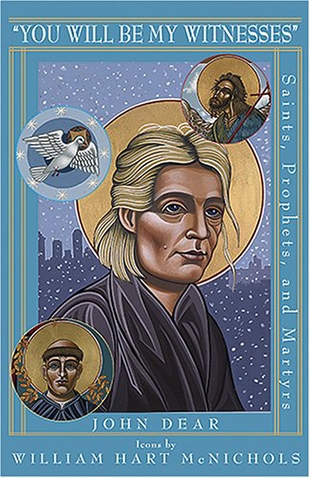"Dorothy (Day) consistently denounced every war during her lifetime, at a time when no other Catholic was even questioning the idea of war. She publicly denounced both World Wars, the Korean War, the Vietnam War, and the U.S. wars in Central America. Instead, she upheld the unpopular, widely ignored Gospel mandate that we love our enemies, serve the poor, feed the hungry, house the homeless, and welcome Christ in the stranger. She advocated voluntary poverty, radical nonviolence, personalism, direct service of those in need, and public witnessing on behalf of the Gospel. Almost single-handedly she broke new ground for the Church. Her influence is far greater than we can measure.
" 'As we come to know the seriousness of the situation — the wars, the racism, the poverty, the nuclear weapons,' Dorothy Day once wrote, 'we come to realize that things will not be changed simply by words or demonstrations. Rather it's a question of living one's life in a drastically different way.'
" 'Becoming a saint is the revolution,' Dorothy wrote. As the Church proceeds to canonize her, the rest of us need to take up her challenge and become saints like her — by serving Christ in the poor, resisting war, and advocating Christ's reign of peace . . .
" 'All my prayers, my own suffering, my reading, my study would lead me to this conclusion, that love is a great and holy force and must be used as a spiritual weapon,' she wrote. 'Love against hate. Suffering against violence. What is two thousand years in the history of the world? We have scarcely begun to love. We have scarcely begun to know Christ, to see him in others around us.'
"In Loaves and Fishes, she (Dorothy Day) names our challenge: 'The greatest challenge of the day is: how to bring about a revolution of the heart, a revolution which has to start with each one of us. When we begin to take the lowest place, to wash the feet of others, to love our brothers and sisters with that burning love, that passion which led to the cross, then we can truly say, 'Now I have begun.' "
